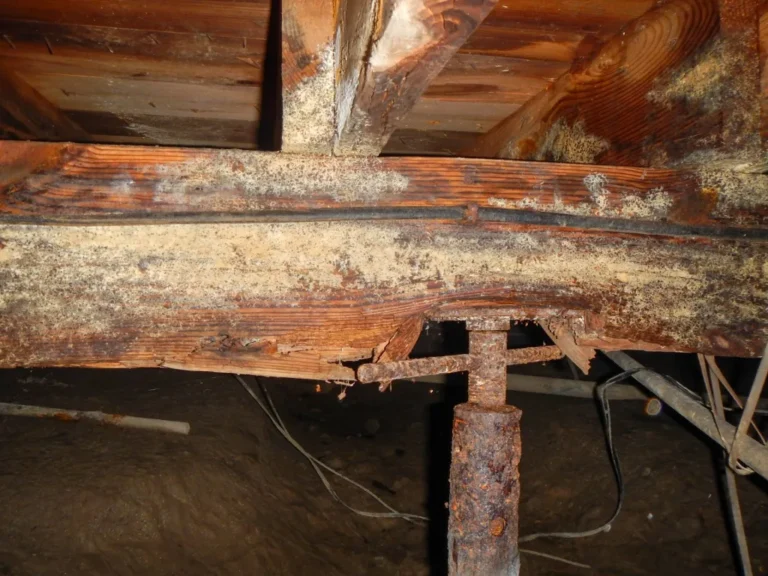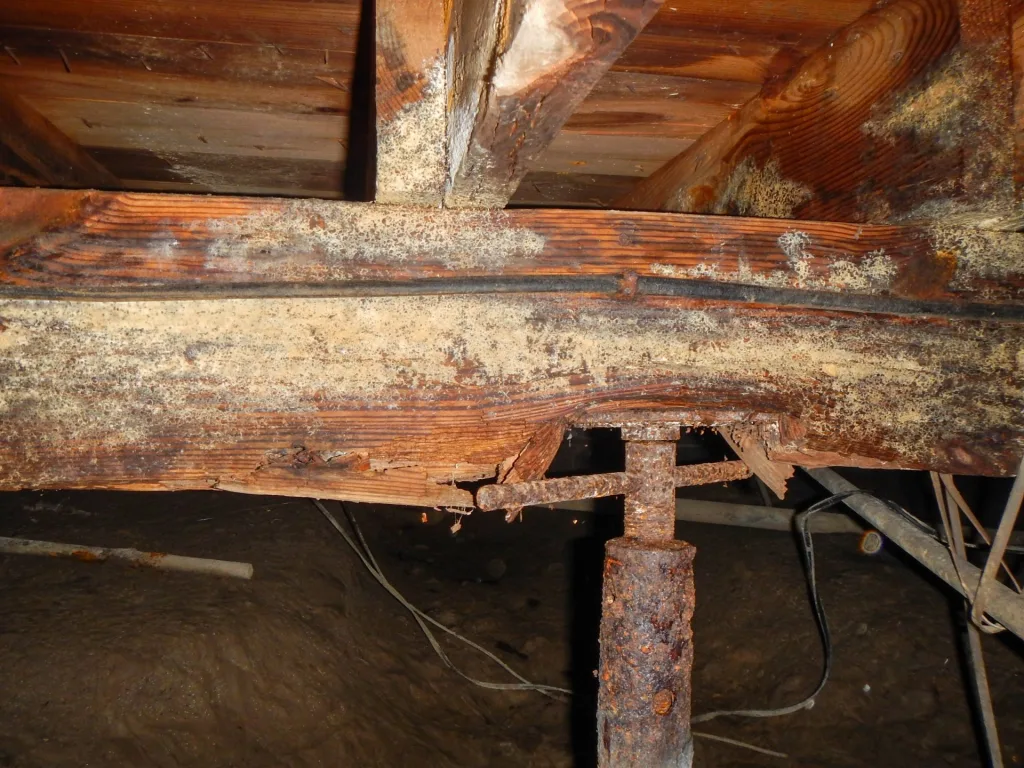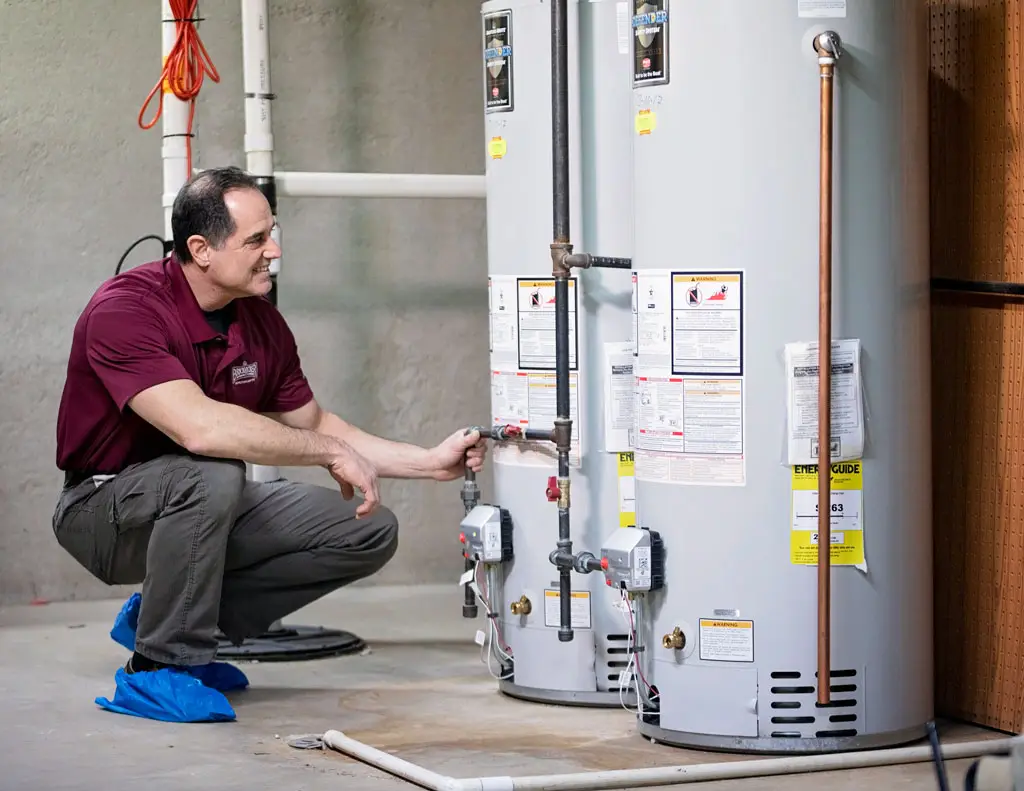Mold and Musty Smells, Let’s Clear the Air

At one point or another, we’ve all entered a building and had our noses turn up at the stale smell. You may be wondering what causes this smell, how to get rid of it, or who to contact with this problem. The BrickKicker is here to answer these questions for you, and give you an in-depth look at preventative measures you can take to ensure your new, or long-lived and loved home, does not develop this issue!

What Causes The Musty Smell?
Most often, a musty smell in the home is a direct cause of mold. The unwelcoming odor is caused by Microbial Volatile Organic Compounds, or MVOCs, which are released by molds that are actively growing. These spores thrive in areas where leaks are present, or where moisture has been present long-term. Though visible in some cases, spore growth might be lurking in hidden places, such as behind walls, under floorboards, or in the ductwork. Understanding the connection between the smell and mold presence can help you take prompt action.
Mold needs specific conditions to thrive, and three of the four crucial factors are beyond a homeowner’s control. We explore how temperature, mold spores brought in from outdoors, and various organic substrates provide an environment conducive to mold growth. However, moisture is the factor we can control, and it’s the key to stopping mold in its tracks. By promptly addressing water intrusion and controlling humidity levels, you can prevent mold from taking hold and keep your home smelling fresh.
What Does Mold Even Smell Like?
Mold is often described as having a musty smell, but how else can it be described other than “musty”? It has a deep pungent, earthy scent, and is similar to rotting wood or wet socks. Lower levels such as basements, and poorly-ventilated old homes are more likely to exhibit this undesirable smell. Chemicals like bleach do well to kill growth and eliminate it’s odor, however, for persistent infestations, we recommend professional mitigation.
Understanding Mold’s Origin and Nature
Mold is a natural part of our environment, serving a purpose similar to mushrooms and other fungi. It breaks down organic material, turning it into nutrient-rich soil. In its initial growing stages, it begins as hyphae, which are microscopic filaments. Once they continue to consume nutrients and enlarge, we are able to see them with the naked eye. At this stage, hyphae have grown on the surface of the subtrate. This creates what looks like a soft blanket, called mycelium. After this, it is ready to spread, and creates spores which are then distributed. While laboratory testing can identify mold species accurately, thorough cleaning is essential regardless of the specific type.
The Health Impact
Mold-related illnesses can affect certain individuals, causing respiratory issues, irritated eyes, rashes, sinus congestion, sneezing, headaches, and, in severe cases, neurological problems. Several factors contribute to the overall affect mold has on an individual. These include the type of organic growth, a person’s level of sensitivity, duration of exposure, and the nutrient source.
Some people are at a greater risk of serious side effects. These categories include those with compromised immune systems, young children, older adults, pregnant women, and those with respiratory conditions such as asthma. This is why it is critical to catch mold and mitigate it as soon as possible.
How The BrickKicker Can Help You!
The presence of a musty smell in your home should not be taken lightly! It likely indicates hidden mold growth. Understanding the connection between the smell and mold presence empowers you to take action and protect your home and well-being. Prioritizing moisture control, regular inspections, and addressing mold promptly are essential steps in preventing mold from becoming a threat. Remember, when dealing with significant mold infestations, it’s best to seek assistance from professional mold mitigation experts for a safe and effective solution. Your home should be a place of joy and comfort, so don’t let mold compromise your sanctuary.
The BrickKicker believes every home inspection should also be a mold inspection, allowing issues to be caught before closing. Although we do not offer remediation services, we are happy to assist you in finding a professional who follows the EPA guidelines for mitigation! In addition to offering mold testing, we also are able to conduct air quality tests. Whether you are buying a house, or are happily settled and just interested in checking on your air quality, we would love to put your mind at ease! Call or schedule with us today!
